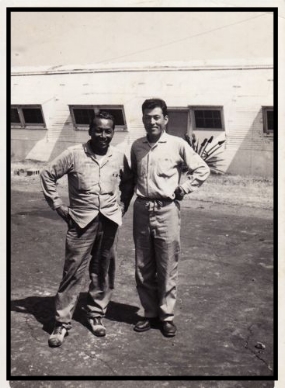Teens and Adults Psychotherapy in San Francisco
When Life Throws You a Curve Ball
In 2003, my father was diagnosed with cancer. At the hospital, I was devastated to see a skeleton-like father, who tried to act "normal" in order to cheer me up when I saw him, unbeknownst for the last time. I did not even get to say "good-bye" to him since he was rushed to the intensive care soon after. Although my mother and I tried our best to be my father's advocates for a better care and treatment options, he passed away from an excruciatingly painful five-month battle with cancer. I felt defeated and guilty for not being able to save him. It was my first time experiencing this amount of emotional pain and loss. I spent sleepless nights having a palpitation, crying and blaming myself for my inability to help him. I would repeat over and over in my head "What if I did this" or "that" in the hopes that I could save my father. It was very painful to reflect and have to regret my action or inaction. Within a week, my family also received a news that my cousin passed away in his sleep. Not long after that, two more cousins died from cancer. This experience forced me to focus on my life in an Existential way. My life has a time limit and it's up to me to make the most of it.
I have to say that I was very fortunate to have family and friends who were supportive and were concerned for me. It helped me tremendously to have people who are kind and open minded, listen to my story. But still, juggling career, social and personal life was not easy at that time. I was often haunted by "I should have" and "I could have" thoughts that kept me from experiencing the present moment. As time passed, I also felt ashamed for not being able to move forward when people asked me if I was over my losses. I had difficulty balancing between being productive and still processing my own grief. I ultimately started seeing a psychotherapist for the first time. This was before I started my graduate study of clinical psychology. Hesitant at first because as an Asian-American, I did not want to talk to a stranger about my issues and I did not know what I was getting myself into. However, I was pleasantly surprised that the therapy actually helped me release my emotions which I suppressed for a long time.
For instance, I probably refrained from sharing my true feelings when talking to a friend or co-worker. However, when I was in a session, I did not have to worry about being judged for having anger, sadness, and guilt all at the same time because my therapist was a trained professional who understood my grief process. While I knew all along that I did not want my mourning process to stop me from living my life constructively, I did not know how. In fact, having my own therapist gave me a permission to feel whatever emotion I was experiencing and validate my grief process.
The Transformation that I Did Not Expect to Have: Self-reflection
Another powerful transformative experience that helped me around this time was to learn Eastern Philosophy, mindfulness, and Japanese Psychology such as Morita Therapy and Naikan (self-reflection.) Morita concepts allowed me to acknowledge my emotions, guided me to think about what I desire in my life, and it gently directed me to take the small actions toward my goal while I still felt bad. It was very powerful to realize that I could lead a constructive and mindful life while I was still feeling less than perfect.
I was also intrigued to meditate in order to gain an introspection but had a hard time focusing whenever I sat down. So I decided to sign up for a week-long Naikan reflection retreat and received some guidance. This is where I was able to examine the interpersonal relationships and life events that I had with my family members and people. After seven days of guided-self-reflection, I was able to gain the multi-perspective on experiences and events which previously, I had my own single track view. I realized sometimes my own self-centered interpretation influenced the way I perceived a certain person and event which were not necessarily true. Having gained more insights of my own thought-process, I felt that I could start appreciating and cultivating connections that I have with people and environment better. I did not know that I had this much self-resiliency until I shifted my mindset through these mindfulness-based practices. If I had not gained these insights, I still would have been in a negative state of mind and being stagnated.
As you can see, I have personally gone through a transformation by learning the mindfulness techniques with concrete tools, which help me get out of the vulnerable state. I am very excited to offer this great combination of the East and West, both Eastern Mindfulness and conventional Western Psychotherapy concepts in my practice. I hope that I get to work with you so I can support you wherever you are on your life journey.
My Late father on the right
Contact me for a FREE 20-MINUTE PHONE CONSULTATION 415.823.0022

